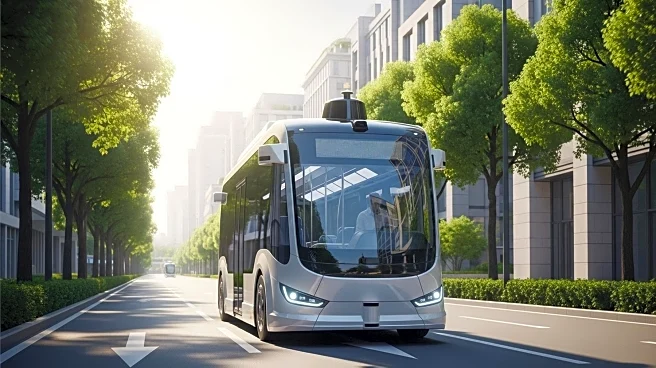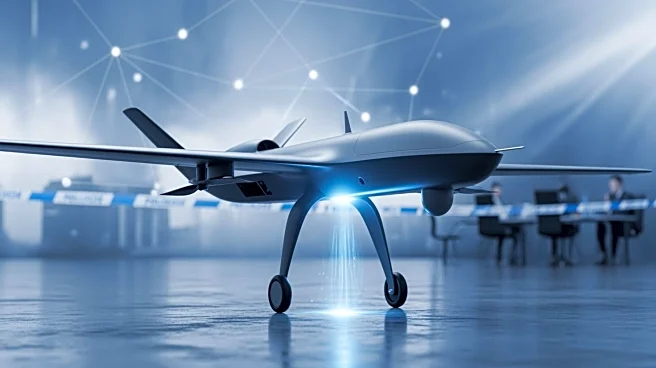What's Happening?
The Seoul Metropolitan Government is set to launch two new self-driving bus routes in Seodaemun-gu and Dongdaemun-gu, expanding the city's autonomous public transportation system. This follows the successful introduction of self-driving buses in Dongjak-gu earlier this year, which received positive feedback from residents. The Dongdaemun A01 route will operate between Janghanpyeong Station and Kyung Hee University Medical Center, covering 23 stops over a 15-kilometer round-trip. Meanwhile, the Seodaemun A01 route will connect Gajwa Station and Seodaemun-gu Office over a 3-kilometer stretch. Both routes will offer free rides until the second half of next year, with passengers required to tag their transportation cards. The initiative aims to improve access to administrative and welfare facilities and facilitate convenient transfers to subway services.
Why It's Important?
The expansion of self-driving bus routes in Seoul represents a significant advancement in urban transportation, potentially setting a precedent for other cities worldwide. By integrating autonomous vehicles into public transit, Seoul is addressing transportation blind spots and enhancing accessibility for residents. This move could lead to reduced traffic congestion and lower emissions, contributing to environmental sustainability. The initiative also highlights the city's commitment to leveraging advanced technologies to improve public services, which could influence policy decisions and investments in smart city infrastructure globally. Stakeholders in the transportation and technology sectors may benefit from increased demand for autonomous vehicle technologies and related services.
What's Next?
As the new self-driving bus routes begin operation, the Seoul Metropolitan Government will monitor their performance and gather feedback from passengers. The success of these routes could lead to further expansion of autonomous transportation options in the city. Additionally, the transition from free to paid services in the second half of next year will require adjustments in fare collection systems and passenger management. The city government may also explore partnerships with technology firms to enhance the capabilities of self-driving buses and integrate them with other smart city initiatives. Public response and safety evaluations will play a crucial role in shaping future developments.
Beyond the Headlines
The introduction of self-driving buses in Seoul raises important ethical and legal considerations, particularly regarding passenger safety and data privacy. Ensuring the reliability and security of autonomous systems is paramount to gaining public trust and acceptance. Moreover, the initiative could influence cultural perceptions of technology and automation, potentially shifting societal attitudes towards embracing innovation in everyday life. Long-term, the success of Seoul's autonomous transportation system could inspire other cities to adopt similar technologies, leading to widespread changes in urban planning and mobility solutions.









